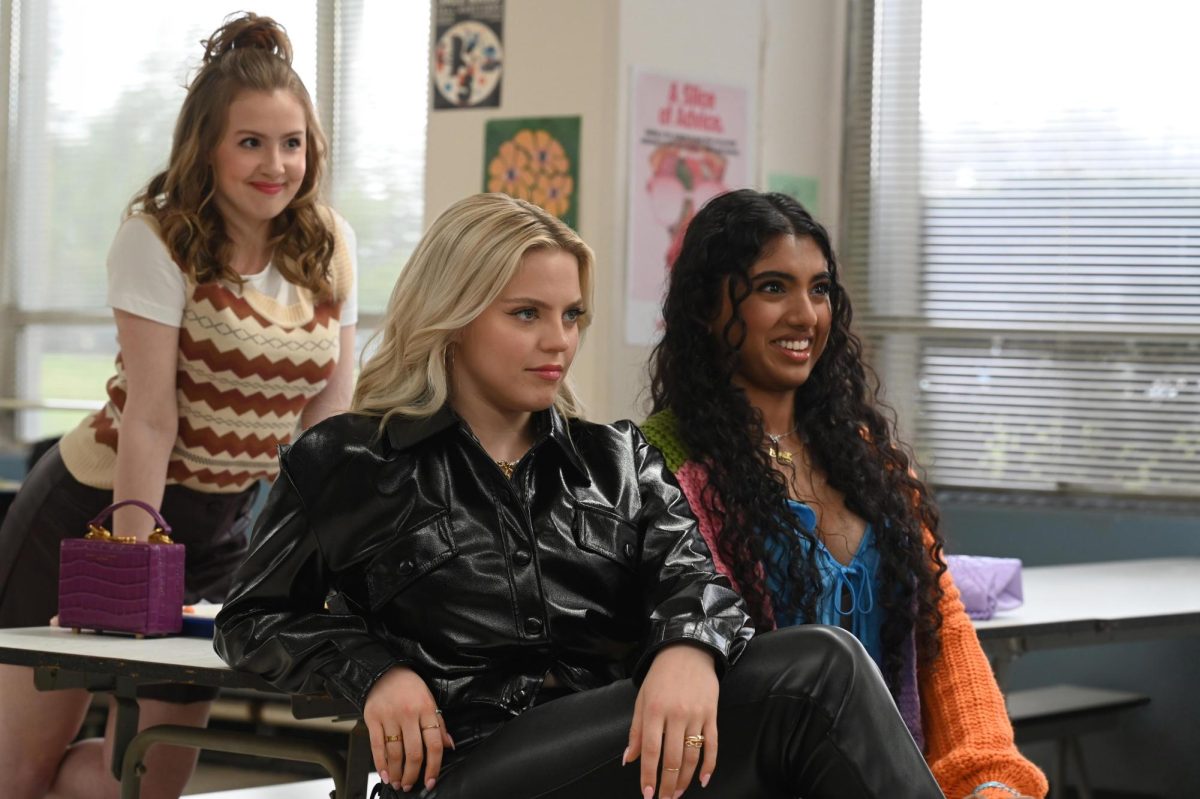People typically have a preconceived idea of high school long before beginning it, whether it’s from books, siblings’ experiences or teachers constantly repeating how hard it’s going to be. Movies are arguably the biggest influence, often times portraying high school as a highly eventful place with never-ending drama.
Sophomore Roman Wolfe, an ardent movie enthusiast, certainly sees the effects of her fixation on her high school expectations.
“Most of my free time I dedicate to watching movies,” Wolfe said. “Since I was eight years old I’ve wanted to do nothing but live and breathe film.”
Wolfe’s most watched genre is crime— Quentin Tarantino and Martin Scorsese films being her favorite— but she enjoys all categories. She feels that teen movies misled her for high school because of their dramatic and eventful plots.
One movie that gave Wolfe a distorted image of how teenagers interact with each other is Richard Linklater’s 1993 movie, “Dazed and Confused”, and it’s no wonder why. The film is based in a small town where high school upperclassmen wickedly haze incoming freshmen on the last day of school— the boys beaten with paddles and the girls covered in flour, raw eggs and condiments and forced to “propose” to senior boys. That, coupled with the typical teen movie stereotype: a get-together full of drugs, alcohol and amorous adolescents, creates a hazy atmosphere of fun and nonchalance toward school responsibilities.
“[I’d] watch movies and see all these people who are supposedly my age, and they’re going these huge parties and rocking out to late ‘70s rock, having a great time,” Wolfe said. “So when my time comes around, the few parties I attend are extremely boring, bad music, nothing interesting happens, once in a blue moon you get to kiss a member of your preferred sex and that’s what you consider an event.”
Junior Jordan Banker had different assumptions from Wolfe, but false nonetheless. The fact that many teen movies are told from the “unpopular” person’s point of view gave her a melodramatic exaggeration of the way people act and misrepresented the purpose of school, which is to learn.
“I thought the workload would be less,” Banker said. “And that people would be meaner than they actually are.”
Banker believes high school is what the individual makes it. Her own experience has included a lot more work and a lot less time for socializing than she initially expected, although she believes it varies among different people.
As far as the lack of socializing, Wolfe’s inferences correspond with Bankers. Wolfe attributes more of her failed assumptions to John Hughes movies like “The Breakfast Club”, “Pretty in Pink” and “Sixteen Candles,” which once again painted an exciting image of high school where everyone has a love interest and attends lots of parties. She also idolized the characters Max Fischer and Margaret Yang in Wes Anderson’s “Rushmore,” and was hurt upon finding out that reality wasn’t the hilarious misadventure that unfolded through the scripted plot.
“I was definitely affected by the adult actors playing teenagers,” Wolfe said. “I thought, ‘I don’t look like a teenager.’ But I realized, it’s not me, I look like a teenager.”
Unlike Wolfe, Junior Jessica Garcia was relieved to find out that high school social life was not as hypersensitive as portrayed in the usual chick flick. She thinks movies make high school seem much worse than it actually is, as if facing obnoxiously preppy girls is a common occurrence for the typical teen.
“My high school experience is great,” Garcia said. “There’s a lot of stress from classes, but otherwise I don’t get bullied like I anticipated.”
Another false aspect devised through movies that Wolfe and Banker both noticed was teens’ appearances. Banker assumed everyone would look much older than they do, especially girls, who are often shown dressing formally and wearing more dramatic makeup.
“I was definitely affected by the adult actors playing teenagers,” Wolfe said. “I thought, ‘I don’t look like a teenager.’ But I realized, it’s not me, I look like a teenager. It’s them, these [actors] who are supposed to be teenagers look like full on adults.”
Aside from physical appearances, Wolfe said the defining line between movies and reality is that in real life, there’s no plot.
In movies, the protagonist is somehow special. But Wolfe said the hard truth is that real life people are not film protagonists, they are normal boring people living normal boring lives. She called the high schoolers in movies crazy, doing things like making pacts to lose their virginity before senior year, going out of town and having choreographed dance scenes.
“The bulk of my free time as a teenaged person consists of driving around and talking about the movies and music I like or gossiping,” Wolfe said. “It’s a lot more simple than anyone likes to believe it is.”
photo illustration by Neil Cathro





















































































